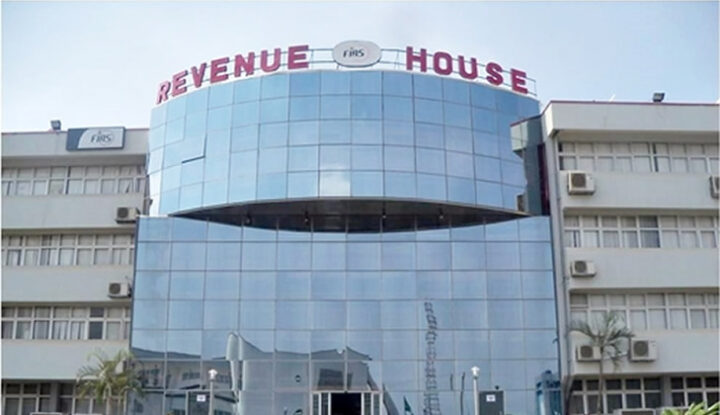The Federal Inland Revenue Service (FIRS) has announced a strategic partnership with the Nigeria Customs Service (NCS) to accelerate the implementation of the National Single Window (NSW) project, a digital trade facilitation platform aimed at streamlining cross-border transactions and enhancing government revenue collection. The move is expected to improve efficiency, reduce bottlenecks, and boost Nigeria’s competitiveness in international trade.
The National Single Window is designed as an integrated digital portal that allows traders, shipping companies, freight forwarders, and government agencies to process import, export, and transit-related documentation through a single entry point. By bringing all relevant stakeholders onto one platform, the system seeks to eliminate the duplication of processes, minimise delays at ports, and enhance transparency in trade procedures.

In a joint statement, the FIRS and Customs said the collaboration would leverage their respective expertise in taxation and border management to ensure the successful rollout of the platform. The agencies explained that the initiative aligns with the government’s broader economic diversification agenda, which prioritises improving Nigeria’s ease of doing business ranking and attracting foreign investment.
FIRS Chairman, Dr. Zacch Adedeji, described the partnership as a “game-changer” for Nigeria’s trade ecosystem. He noted that the National Single Window would not only enhance revenue mobilisation by reducing leakages but also significantly cut the cost and time of trade transactions. According to him, the project will help position Nigeria as a major logistics hub in Africa by creating a more predictable and business-friendly trading environment.
Comptroller-General of Customs, Bashir Adewale Adeniyi, emphasised that the success of the NSW depends on effective collaboration among all trade-related agencies. He assured stakeholders that Customs is committed to integrating its existing systems with the new platform to ensure seamless operations. Adeniyi also stressed that the project would incorporate global best practices, in line with recommendations from the World Customs Organization (WCO) and the World Trade Organization (WTO) Trade Facilitation Agreement.
One of the key benefits of the National Single Window is its potential to drastically reduce paperwork and human interference in cargo clearance processes. By enabling electronic submission and approval of documents, the system will curb opportunities for corrupt practices, enhance compliance with regulations, and provide real-time data for policy decisions.
Industry stakeholders have welcomed the partnership, saying it could mark a turning point in Nigeria’s port operations if implemented effectively. Freight forwarders, shipping lines, and logistics operators believe that the platform will help eliminate unnecessary delays that have long hindered trade flow and increased operational costs. However, they also cautioned that the success of the initiative will depend on adequate infrastructure, continuous capacity building, and strong political will to sustain reforms.
The FIRS noted that the NSW project would also support the government’s revenue drive by improving the accuracy of trade data, enabling better tax assessments, and ensuring that duties and levies are collected promptly. The platform will allow for the harmonisation of data across agencies, which will help to detect fraud, prevent under-declaration of goods, and reduce revenue losses.
Customs officials added that the project will be implemented in phases, starting with key ports and border posts before being expanded nationwide. This phased approach is expected to allow for testing, stakeholder feedback, and fine-tuning of the system to ensure optimal performance.
The collaboration also comes at a time when Nigeria is working to fully operationalise the African Continental Free Trade Area (AfCFTA) agreement. The NSW is seen as a crucial enabler for seamless intra-African trade, as it will align Nigeria’s trade processes with those of other countries in the region and reduce non-tariff barriers.
As part of the next steps, the FIRS and Customs plan to set up a joint technical committee to oversee the integration process, develop implementation timelines, and coordinate engagement with other relevant agencies such as the Nigerian Ports Authority (NPA), Nigerian Maritime Administration and Safety Agency (NIMASA), and the Central Bank of Nigeria (CBN).
Both agencies have reiterated their commitment to ensuring that the project delivers tangible benefits to businesses and the economy. They also urged private sector stakeholders to actively participate in consultations and provide input to ensure that the platform meets their needs.
If successfully implemented, the National Single Window is expected to significantly enhance Nigeria’s trade efficiency, improve transparency, and increase revenue collection. It could also serve as a model for other African countries seeking to modernise their trade facilitation systems and integrate into the global economy more effectively.
With the partnership between FIRS and Customs now formalised, stakeholders are watching closely to see if this long-anticipated reform will finally transform Nigeria’s import-export landscape, reduce costs for traders, and position the country as a competitive player in regional and global trade.
Support InfoStride News' Credible Journalism: Only credible journalism can guarantee a fair, accountable and transparent society, including democracy and government. It involves a lot of efforts and money. We need your support. Click here to Donate
